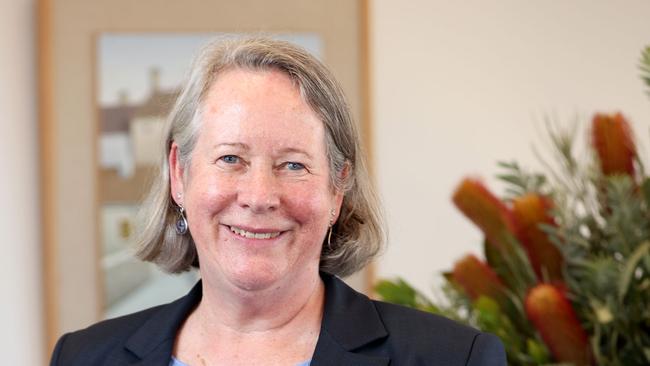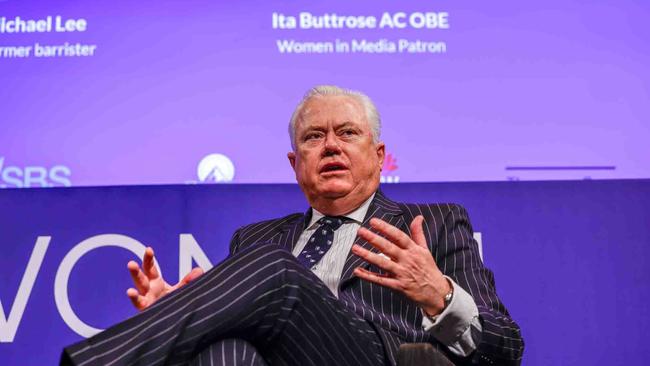Public, media not automatically entitled to ‘juicy’ court details: chief justice
The chief justice of the Federal Court has declared ‘open justice is not open slather’ and the media is not automatically entitled to access the ‘juicy’ details of cases to satisfy public curiosity.

The chief justice of the Federal Court has declared “open justice is not open slather” and the media is not automatically entitled to access the “juicy” details of cases to satisfy public curiosity, in a defence of her judges’ moves to suppress details of dozens of cases.
In a sweeping intervention amid debate over what constitutes open justice, Debra Mortimer said the law “operates on human lives” and evidence or documents may be suppressed to be “fair” to a party or a witness.
The comments come following a subtle campaign being driven by Federal Court judge Michael Lee, who has instructed media organisations to hold the courts to account and fight “swingeing” orders, and has called for a “national register” to track the number of suppression and non-publication orders approved by the court.
“My specific focus is on how the Federal Court, in a contemporary Australian landscape, can remain faithful to the values that sit behind the phrase ‘open justice’, rather to the somewhat misunderstood phrase itself,” Chief Justice Mortimer said, when delivering a lecture at the University of Melbourne law school last month.
“Those values do not favour disclosure of everything and anything filed with a court or adduced in evidence. Open justice is not open slather.”
Chief Justice Mortimer said judges were required to balance the public operation of the court with what was fair to parties and witnesses. “Carefully, methodically, over time, the common law and the parliaments have built up a body of law that seeks to strike a balance between on the one hand being faithful to the general principle of courts doing their work in public, and on the other being faithful to what is fair to litigants, witnesses, and wider third-party interests in the whole context of a particular case, and what facilitates doing justice between the parties who come to us,” she said.
“Over time, these balances might change as public policy and community expectations change.”
She said judges must consider that court decisions had real impacts on human lives when deliberating suppression decisions. “Most of us who speak or write about the concept of ‘open justice’ are either official participants in the justice system, or observers of it. Thus it is not our story of intimate physical violations, or our precarious mental health, or our gambling addiction which led to our bankruptcy, nor our own contractual arrangements designed to save our business which are at stake. We have no skin in the game,” she said.
“In assessing claims for suppression orders, that kind of objectivity is central. But as in so many areas of the law, before the courts are criticised for suppressing evidence or documents, let us remember the law operates on the lives of human beings, and in every juicy item where it might be said that this creature ‘open justice’ demands disclosure, there is a human being who may be affected by the suppression decisions that courts make.”
The comments come after instructions from Justice Lee for journalists to hold courts “to account” by enlisting “some young junior barrister” who is “cheap as chips” to oppose suppression orders. “Don’t brief silks,” he told a Women in Media event in August.

Justice Lee earlier this year found an attempt by the Super Retail Group to shield media from an alleged settlement agreement was done “unnecessarily and hence wrongly”. That ruling is being appealed.
Contrastingly, last month judge Nye Perram granted a suppression order in a matter filed against Seven by a former Spotlight employee centring on “humiliating” documents airing the network’s “dirty linen”. The application was opposed by this masthead, Nine, the ABC and the former employee’s lawyers.
Justice Perram said the public release of the documents could “imperil” an upcoming confidential mediation between the parties, and ruled they should be suppressed until a week after the mediation concluded. During the suppression hearing, he spoke about having to spend hours each week dealing with journalists applying to view documents from the court.
In preparing for the address, Chief Justice Mortimer put together some preliminary statistics showing a suppression order was recorded in 5 per cent of all judgments (91 of 1830) published online in the past financial year.
These statistics did not take into account suppression orders made by judges on the spot when there is no contest from either party or an external interested group. They also did not include instances when interim orders were made in a judge’s chambers, or when existing orders were varied in chambers.
“The main messages are that the Federal Court does not make many suppression orders, and where it does, many are time limited. The views of third parties wishing to oppose the making of an order are heard, and it can be the case that more limited suppression orders are made than those sought, or orders are made for a more limited time,” Chief Justice Mortimer said.
“However, the other main message is that there is no formula applied by our judges and each case very much turns on its own facts. That is how justice works; judges look at the facts and evidence in the case before them.”
She said she was keen to investigate “more comprehensive” data capture around suppression orders to enable an accessible court. She also said “absolutist criticism” about the “non-disclosure of court documents also risks undermining community confidence in the courts where there is no justification for the community to lack confidence that courts such as the Federal Court are committed to operating in an open manner”.






To join the conversation, please log in. Don't have an account? Register
Join the conversation, you are commenting as Logout